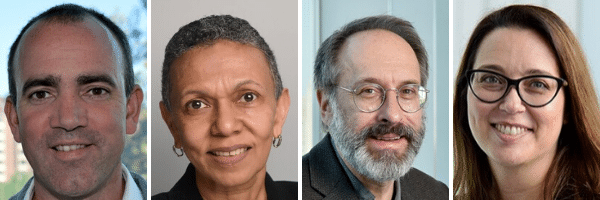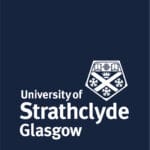
Please join the CUNY ASRC and CUNY Graduate School of Public Health on Tuesday, July 7 for the next session of the Thriving after Massive Global Disruption webinar series hosted by the University of Strathclyde (UK) and involving partner Universities from across the globe.
Tuesday, July 7, 2020, 9:00 a.m. ET
REGISTER: https://bit.ly/ThriveAfterPandemic
The COVID-19 pandemic is a stark example of how crises inevitably impact marginalized and poor people most. In the United States, the virus continues to infect Black and Latinx communities at a disproportional rate, and these communities experience worse health outcomes. Myriad underlying racial, ethnic and economic disparities led to this, and these disparities are exacerbated by the repercussions of the pandemic. Our panel will address three relevant areas simultaneously in crisis in the United States: public health, the environment, and public education. The interconnectedness of these crises is especially apparent in dense and diverse urban environments like New York City, and the crafted solutions must meet local needs. We will explore how urban public higher education and convergent research can help lead the charge toward finding and implementing solutions to this complex and interwoven set of crises.
We will discuss:
- How public urban universities like CUNY and interdisciplinary research centers like the CUNY ASRC can play a catalytic role in helping cities thrive by driving diverse STEM workforce development, rethinking the curriculum to promote convergence and systems thinking, and promoting data-driven policymaking.
- The role of convergent research in realizing effective solutions and the development and democratization of state-of-the-art scientific technologies that help predict, quantify, prevent and counter environmental issues and future pandemics.
Panelists:
Rein Ulijn is director of the ASRC Nanoscience Initiative, director of the ASRC Center for Advanced Technologies in Sensors (Sensor CAT) and Einstein Professor of Chemistry at Hunter College. Ulijn’s research, educational and administrative roles span developing sustainable nanoscience solutions that have applications in health care and environmental mitigation and driving workforce development and science technology startups in New York.
Luisa Borrell is a Distinguished Professor at the Department of Epidemiology and Biostatistics, Graduate School of Public Health and Health Policy, City University of New York (CUNY). Her research interest is on race and ethnicity, socioeconomic position, and neighborhood effects as social determinants of health. She has expertise in racial/ethnic disparities in health and oral health, research methods and the analysis of large databases, including survey, census and spatially linked data. She has published on the areas of race/ethnicity, socioeconomic position, and neighborhood effects on health and oral outcomes as well as mortality.
Charlie Vörösmarty is Director of the ASRC Environmental Sciences Initiative and Einstein Professor of Civil Engineering at the City College of New York. His research focuses on the development of computer models and geospatial data sets used in synthesis studies of the interactions among the water cycle, climate, biogeochemistry and anthropogenic activities. His work on human-water interactions includes earth system modeling of the Northeastern United States, development and analysis of databases depicting reservoir construction worldwide and how they generate downstream coastal zone risks, and global threats to human water security and aquatic biodiversity.
Annette “Nina” Gray is Executive Director of the ASRC and Associate Dean for the Sciences at The Graduate Center, CUNY. She oversees all ASRC operations, research activities, and educational initiatives. She also develops programs and partnerships to enhance interdisciplinary scientific research and education in order to advance the center’s vision to improve human, societal, and environmental well-being in the decades to come.
Host:


